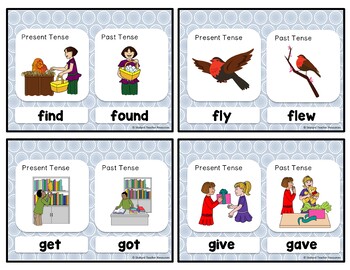
When the action changes the situation (e.g. it’s now too late, or we’re now in lunch time, or (as opposed to “the bell rang occasionally, or at some point in the past, or just now, but without any change of situation). If the bell has already rung, that not only means that the event has happened, but that there is an ongoing effect, e.g. …it seems to illustrate a possible conflict between what is ‘correct’ and a form used fairly commonly in the US. Re: “The bell already rang.” To me, a Brit, that doesn’t work, but… Were you aware that the phone rang this morning? By tomorrow, they will have rung the bell ten times to get the students’ attention.ĥ. She had rung the bell three times before I was near enough to hear it.Ĥ. We rang the bell, but no one answered the door.ģ. He rings the bell to get the students’ attention.Ģ. Were you aware that the phone this morning?ġ. By tomorrow, they will have the bell ten times to get the students’ attention.ĥ. She had the bell three times before I was near enough to hear it.Ĥ. We the bell, but no one answered the door.ģ. He the bell to get the students’ attention.Ģ. She would have rung the bell sooner if she had known they were leaving today.ġ. I would have rung the bell sooner if I had known they were leaving today. If they don’t answer the door soon, she will have rung the bell twice since this morning. If they don’t answer the door soon, I will have rung the bell twice since this morning. The past participle also includes the auxiliary verb have, has, or had depending on whether it is in the present, past, future, or conditional perfect. The past participle of ring changes the central vowel to u.

They rang their bike bells when they approached the park. The simple past tense of ring changes the central vowel to an a. They ring their bike bells when they approach the park.

Like standard verbs, ring has no change of form or vowel in the present tense. Ring conjugates as ring (present tense), rang (simple past), and rung (past participle). In verb conjugation, a regular verb follows a simple, predictable pattern, such as print (present tense), printed (simple past), and printed (past particle): I print, you printed, and they have printed.Īn irregular verb is one that forms its simple past tense and past participle with a non-standard pattern.


 0 kommentar(er)
0 kommentar(er)
